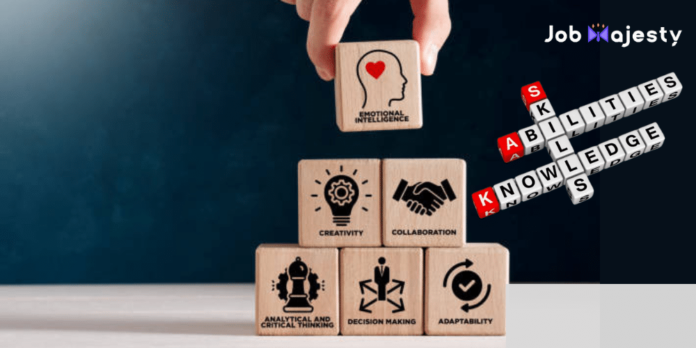Introduction: In a world that celebrates talent and exceptional abilities, it is easy to feel disheartened when we perceive ourselves as lacking in specific skills. However, it is essential to recognize that each individual possesses unique strengths and weaknesses. In this article, we will explore the concept of “im the only one with unfavorable skills” and explore strategies that can help you unlock your true potential, regardless of how you perceive your abilities.
I. Understanding Unfavorable Skills
- Defining Unfavorable Skills:
- Unfavorable skills refer to abilities that we perceive as limitations or shortcomings compared to others.
- These skills may include anything from public speaking, artistic talent, or mathematical proficiency to social skills, organizational abilities, or physical coordination.
- The Perceived Impact of Unfavorable Skills:
- Society often values certain skills more than others, leading individuals to believe their unique talents are less desirable or valuable.
- The perception of unfavorable skills can result in self-doubt, lowered self-esteem, and missed opportunities for personal growth and success.
II. Embracing Individuality and Self-Acceptance
- Recognizing Your Unique Value:
- Understand that everyone possesses a unique combination of skills and strengths.
- Embrace the fact that your individuality adds value to the world and the people around you.
- Remember that others may highly value skills perceived as unfavourable by some.
- Shifting Your Perspective:
- Focus on your strengths and leverage them to your advantage.
- Realize that unfavourable skills can be developed and improved through practice and dedication.
- Embrace the learning process and view challenges as opportunities for growth.
III. im the only one with unfavorable skills: Developing Unfavorable Skills
- Identifying Areas for Improvement:
- Reflect on the skills you consider unfavorable and determine which ones you would like to develop.
- Prioritize the skills that align with your personal goals and aspirations.
- Seeking Learning Opportunities:
- Explore resources such as books, online courses, workshops, or mentorship programs to acquire new knowledge and skills.
- Break complex skills into smaller, manageable tasks to make learning more approachable.
- Be patient with yourself and acknowledge that progress takes time.
IV. Leveraging Strengths to Compensate
- Understanding Strength-Based Approaches:
- Strength-based approaches focus on leveraging your existing strengths to compensate for areas that may be perceived as unfavorable skills.
- Identify how your strengths can be applied to overcome challenges or achieve desired outcomes.
- Collaboration and Networking:
- Seek collaborations and partnerships with individuals who possess complementary skills.
- Working together can create a synergistic environment where each person’s strengths contribute to collective success.
V. Emphasizing Personal Growth and Resilience
- Cultivating a Growth Mindset:
- Embrace a mindset that views challenges as opportunities for growth.
- Adopt a positive attitude towards learning and improvement.
- Building Resilience:
- Resilience is crucial in overcoming setbacks and persevering in the face of challenges.
- Develop coping strategies and self-care practices to enhance your emotional well-being.
Conclusion: Remember, the perception of unfavourable skills is subjective and can be overcome with the right mindset and approach. Embrace your unique strengths and talents, and recognize that improvement is possible in any skill area with dedication and practice. By focusing on personal growth, leveraging strengths, and cultivating resilience, you can unlock your true potential and achieve success in your way. Embrace the journey and celebrate the progress you make along the way.
